Course modules
Discover the building blocks of your programme
Further guidance on modules
Modules are designated core or optional in accordance with professional body requirements, as applicable, and LJMU’s Academic Framework Regulations. Whilst you are required to study core modules, optional modules provide you with an element of choice. Their availability may vary and will be subject to meeting minimum student numbers.
Where changes to modules are necessary these will be communicated as appropriate.
Core modules
Language Development and the Impact of Deafness
15 credits
15 credits
In this module the student will learn all about the typical development of language and communication skills and how this process may be impacted by deafness. They will reflect upon the factors that have been found to help drive language development, which should help them to maximise the development of language and communication skills in the children with whom they are working.
Introduction to Audiology
15 credits
15 credits
This module enables students to develop a comprehensive understanding of the process of hearing, causes of hearing loss, identification of different types of deafness and interpretation of audiological information/audiograms, understanding routine paediatric audiological assessments and the use of the testboxes for testing hearing aids. In our workshop sessions you will have opportunity to explore different amplification options and develop your own skills in the management of a range of personal and educational amplification systems used to support deaf learners' access to the educational curriculum. Throughout the course of study you will come across a range of invited guest speakers who have provided pre-recorded lecture material for you to view.
Teaching Deaf Learners
15 credits
15 credits
This module examines the current educational context for children and young people who are deaf in relation to the range and type of educational provision available nationally. Students evaluate current research and data related to educational provision, practice and outcomes and apply and evaluate models of good practice and pedagogy.
The first assessed teaching placement is a major component of this module. In addition to the teaching placement, students explore and evaluate a range of provision and practice.
Students are encouraged to act as reflective practitioners and employ an experiential learning cycle to analyse and improve their own performance. Students are required to demonstrate research-informed practice and evidence the interrelationship of theory and practice within the professional context.
Developing Audiological Understanding
15 credits
15 credits
This module builds upon the audiological skills and knowledge base that students gained from completing the ‘Introduction to Audiology’ module taught in the first year. Throughout this module students learn to further interpret audiological data such as aided thresholds, microphone transparency curves in relation to assistive listening technology (ALT) and hearing aid systems, understanding the newborn hearing screen tests, administering, scoring and interpreting various assessments of functional listening skills, identifying challenges and next steps and evaluate the effectiveness and fitness for purpose of amplification provision. Students gain competences in these areas to enable them to provide effective educational advice to other professionals within an advisory or a consultancy role.
Holistic Development and the Impact of Deafness
15 credits
15 credits
This module focusses upon the holistic development of the deaf child/young person and particularly those areas of development at most potential risk from the impact of deafness. These include; the development of literacy skills, mathematical understanding, cognition and social and emotional development. You will critically evaluate the current theoretical discourses in relation to these areas of development and their application to children and young people with whom they have contact on a professional basis. You will also explore the association between deafness and other additional/complex needs and the impact of this interrelationship upon the development of the child/young person.
The topics covered in this module will be underpinned by the prior study of language development and the impact of deafness
Policy and Practice
15 credits
15 credits
This module focuses on the current legislative and advisory framework related to Special Needs and Disability and specifically to the field of Deaf Education. Students critically appraise the role and responsibilities of the Teacher of Deaf Children and Young People (QToD) and other related professionals and organisations in relation to current legislation and national guidance to develop an understanding of models of good practice. The specific legislation and national guidance governing the working practice of QToDs within different educational phases and with different groups of individuals and organisations is considered. Students critically analyse policy and working practice at an individual/school/service level and consider innovative and transformative solutions.
This module considers the advisory and legislative basis of the students’ professional practice as explored within the other modules studied within this academic year.
Language Assessment and Facilitation
15 credits
15 credits
In this module you will learn all about the process of the assessment of language and communication skills for children and young people who are deaf. We will find out about informal and standardised assessment methods and you will need to think about the relative strengths and weaknesses of different assessment procedures and approaches. We will also be exploring what you do with the results of assessments and you will learn more about target setting and programme planning (with regards to language and communication skills) and report writing.
Evidencing Outcomes
15 credits
15 credits
This module pulls together all of the preceding underpinning work in audiology, language, policy, development and placement for a summarial demonstration of outcomes that have been achieved. Students exercise critical thinking and autonomy of judgement in evidencing their systematic understandings and achievements.
Career paths
Further your career prospects
LJMU has an excellent employability record with 96% (HESA 2018) of our postgraduates in work or further study six months after graduation. Our applied learning techniques and strong industry connections ensure our students are fully prepared for the workplace on graduation and understand how to apply their knowledge in a real world context.
Tuition fees and funding
Entry requirements
You will need:
Qualification requirements
Undergraduate degree
An undergraduate UK degree or other qualification at equivalent level.
An alternative qualification may be considered for entry, subject to postgraduate programme admissions team approval.
Further information
-
Extra Requirements
- Two references including one from current employer.
- Signed letter from current employer in support for employee as a postgraduate student by providing mentor, study leave and funding as appropriate.
- Qualified Teacher Status (QTS) or Qualified Teacher Learning and Skills (QTLS).
-
Usually, Employment history as an educational practitioner working with deaf children or young people.
International requirements
IELTS
IELTS: Applicants whose graduate study or relevant experience was undertaken in languages other than English, will need to demonstrate English language proficiency to the level of an IELTS score of at least 6.5 (minimum of 5.5 in each component).
Further information
-
Extra Requirements
- Two references including one from current employer.
- Signed letter from current employer in support for employee as a postgraduate student by providing mentor, study leave and funding as appropriate.
- Qualified Teacher Status (QTS) or Qualified Teacher Learning and Skills (QTLS).
-
Usually, Employment history as an educational practitioner working with deaf children or young people.
How to apply
Securing your place at LJMU
Your university life
From accommodation and academic support to clubs and societies. Find out what LJMU has to offer.
Related Links
Talk to our students
Connect with a current LJMU student for advice and guidance on university life, courses and more.
See what our students are saying
At LJMU we want you to know you’re making the right choice by studying with us. You can see what our students are saying about their experience with us through their reviews on the following websites:
Related Links
News and views
Browse through the latest news and stories from the university

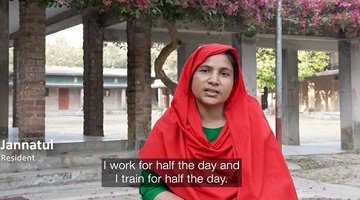
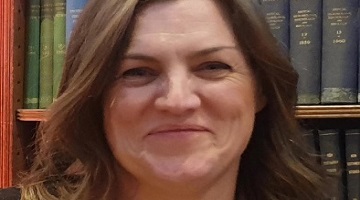
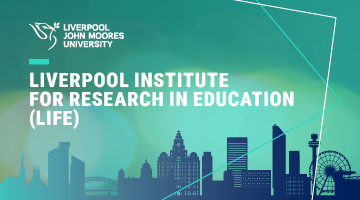
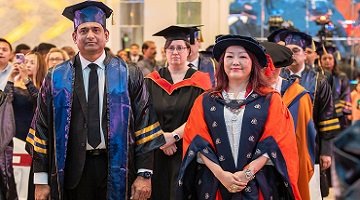

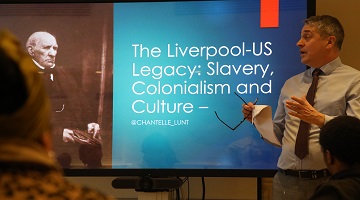
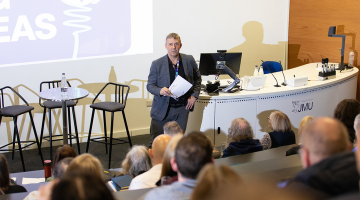

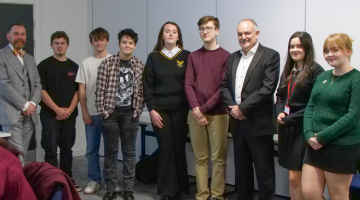
The University reserves the right to withdraw or make alterations to a course and facilities if necessary; this may be because such changes are deemed to be beneficial to students, are minor in nature and unlikely to impact negatively upon students or become necessary due to circumstances beyond the control of the University. Where this does happen, the University operates a policy of consultation, advice and support to all enrolled students affected by the proposed change to their course or module.















